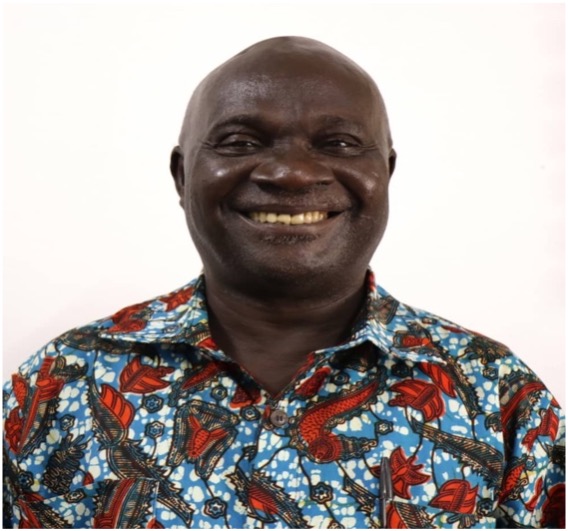
Agyekum K. (2021a). Proverbs in Akan highlife lyrics: A case study of Alex Konadu’s Lyrics. Journal of Pragmatics, 174:1-13.
The paper examined the use of proverbs by Alex Konadu, a Ghanaian highlife artiste. The paper was discussed under the theoretical framework of Linguistic Politeness, which reflects the use of tactful and practical language to obviate crisis. We subjected the proverbs to sociolinguistic, semantic, stylistic and pragmatic analyses.
The paper noted that proverbs are indispensable, and are part of speakers’ creativity and communicative competence. They serve as pragmatic tools in Akan politeness systems for handling delicate and face threatening acts. Akan renowned highlife musicians like Konadu spice their songs with proverbs as forms of indirection that enrich the stylistics of the language. Proverbs serve as an escape valve that gives him the opportunity to comment politely and freely on sociocultural, political and delicate issues without incurring the displeasure of addressees. The proverbs are based on the Akan socio-cultural concepts, beliefs, ideology, perception, mindset, philosophy, worldview, past experiences, and social structures. The proverbs in the songs were categorised under four major themes, namely disobedience, opportunism; the youth and family, and death.
We finally stated that Akan highlife composers of the current generation do not efficiently employ proverbs. They are not very versatile and communicatively competent in the Akan language and culture like their predecessors. We recommended that the current generation should make conscious efforts to master the Akan language and culture and avoid the use of vulgar language in their songs. We need to rejuvenate pragmatics and traditional values into the contemporary highlife lyrics
Agyekum Kofi (2021b). The role of pragmatics in social cohesion and nation building in Africa. Ghana Journal of Linguistics: Selected papers from the 1st African Pragmatics Conference, 10 (1): 1-26.
This paper navigated into some areas covered under pragmatics as one of the newest areas in linguistic studies in African universities. It first gave a survey of the theories and practices. The paper, discussed the strong symbiotic relation, and synergy between the theoretical and practical perspectives of pragmatics. The theoretical principles covered the cooperative principles, referencing, including, implicatures, explicatures, deixes, speech acts, pragmatic acts, politeness, impoliteness, and X-phemisms, and face concepts, ethnopragmatics and intercultural pragmatics The other areas covered included lexical pragmatics, discourse markers. The paper also discusses the application of the theories and pragmatics and politics and touched on social interaction, communication and language use. These included pedagogy, mediatised discourse and journalism, honorifics, persuasion, advertising, business, law and performing arts. It looked at political discourse, pragmatics and the media, pragmatics and pedagogy, and pragmatics and culture with emphasis on ethnopragmatics.
The final section paid attention to pragmatics and literature, intercultural communication, health, agriculture, trade, religion, pragmatics and all forms of speeches and interactional contexts. The method for investigation was purely based on secondary data from works by African pragmaticists. The paper suggested some recommendations for the expansion of teaching, research and publication of pragmatics in Africa. Another recommendation was the establishment of the Journal of African Pragmatics which has been done.
The paper concluded that pragmatics brings perfect social cohesion and peaceful co-existence, which promote productivity, national development and excellent nation-building in Africa.
Ofori, V., Diaba, G. & Agyekum, K (2021c). Humour in Akan dame, ‘draught’ games. Ghana Journal of Linguistics Selected papers from the 1st African Pragmatics Conference, 10(1):123-149.
This paper did an ethno-pragmatic analysis of humour in the Akan dame, ‘draught’ game. Humour is an important aspect of human behaviour and communication. The paper focused on the types of humour, the linguistic strategies used in creating humour and the functions of humour in the game. Data were gathered through non-participant observations, semi-structured interviews and library and internet studies on humour, jocular insults and ridicule.
The paper showed that participants of the game generally resort to jocular mockery and jocular abuse. This is done through the use of stylistic devices like metaphor, allusion, sarcasm, simile, rhetorical questions and teasing songs. Contextual cues including laughter and giggles are employed as humour, jocular insults and ridicule. The paper employed the Superiority Theory, and argued that participants often use humour, insults and ridicule, to demoralize and put fear into losing contestants while boosting their confidence, competence as winning contestants. The aim is to use the strategies to confuse the opponent so as to lose the game.
We finally noted that if we look at the use of humour in the game from a psychological point of view, then humour can be described as one of the characteristics of well-being, for it can reduce tension and stress. From the pragmatics perspective, we see humour in the dame game as an aspect of indirection where offensive expressions rather connote entertainment. The humorous language, which outside the dame game are divisive utterances, rather bring about in-group identity and bonding, and strengthens group and social cohesion.
